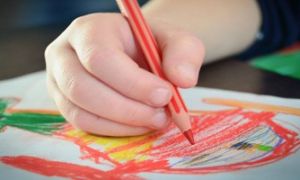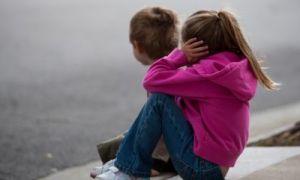From now, babies begin to identify and respond to their own feelings, understanding other's feelings & needs and interact positively with others. A baby's social and emotional development increases by becoming more aware of other people that are around them and loves the attention they receive.
Social and Emotional Development Milestones
From 1 to 2 Years
At this stage, a baby's social and emotional development enters a new phase as they begin to develop independence and their own identity. Babies will want to make choices, be independent by doing things themselves and at times can be extremely assertive. Assertiveness typically can be described as selfishness. However, during this period this word doesn't apply for babies. They literally cannot understand anybody else's point of view and children of this age cannot understand how other people think and feel.
Milestones Achieved
- may have a temporary attachment to one person in particular
- plays alongside others while playing
- has increased sense of self-awareness of being an individual (particular likes and dislikes)
- determined to get own way
- begins to show signs of jealousy when you give attention to another child
- starts to become more independent
- learns good eating habits
- begins to learn basic social skills
- has preferences for specific food and toys
- appreciates the company of family and friends
- may show signs of being ready to start toilet training
- persists in challenging decisions
- begins to interact with other children
- able to understand simple rules
- enjoys the security of a regular routine
- enjoys the company of older children
- continues to have trouble sharing toys and playing cooperatively
- wants to help during bath time
- begins to brush own teeth
- carries out small tasks, enjoys the responsibility of doing so
- may cry when separated from a parent, although stops when the parent is out of sight
- maybe shy with strangers
- imitates the behaviour of others, especially adults and older children
- increasingly enthusiastic about company or other children
- demonstrates increasing independence
- begins to show defiant behaviour
- begins to cooperate when playing
- may play alongside other toddlers, doing what they do but without seeming to interact (parallel play)
- curious and energetic, but depends on adult presence for reassurance
- may show anxiety when separating from significant people in their lives
- seeks comfort when upset or afraid
- takes a cue from the parent or principal carer regarding attitude to a stranger
- may 'lose control' of self when tired or frustrated
- assists another in distress by patting, making sympathetic noises or offering material objects
A strong connection between family and the baby makes them feel safe and secure. This provides a solid foundation for babies to build social relationships with others and helps to develop trust in others.
Note: Updated 27 April 2020


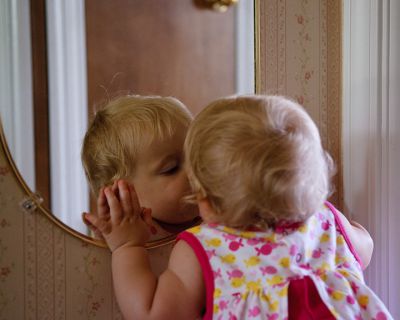
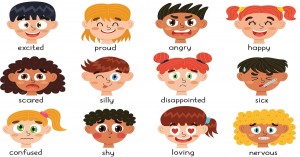
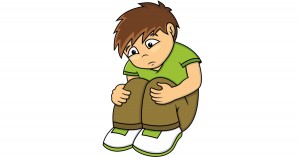
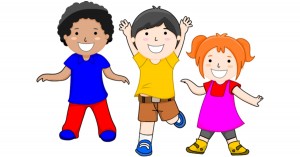
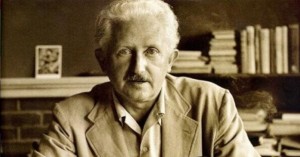
 Toddlers have a greater understanding of the world around them by this stage. Their cognitive development (also known as intellectual development and thinking skills) continues
Toddlers have a greater understanding of the world around them by this stage. Their cognitive development (also known as intellectual development and thinking skills) continues Infants begin to develop trust when parents begin to fulfil their needs. Such as changing an infant's nappy when needed, feeding on request and holding
Infants begin to develop trust when parents begin to fulfil their needs. Such as changing an infant's nappy when needed, feeding on request and holding Beginning at birth the construction of thought processes, such as memory, problem solving, exploration of objects etc, is an important part of an infant’s cognitive
Beginning at birth the construction of thought processes, such as memory, problem solving, exploration of objects etc, is an important part of an infant’s cognitive Toddlers want to do more on their own and do not like it when you begin to establish limits on their behaviour. Tantrums can become
Toddlers want to do more on their own and do not like it when you begin to establish limits on their behaviour. Tantrums can become Your preschooler is now able to focus their attention more accurately and is less influenced by distractions. The intensity of questions increase as your child
Your preschooler is now able to focus their attention more accurately and is less influenced by distractions. The intensity of questions increase as your child John Dewey is often seen as the proponent of learning by doing – rather than learning by passively receiving. He believed that each child was active,
John Dewey is often seen as the proponent of learning by doing – rather than learning by passively receiving. He believed that each child was active, Toddler advance and gains new skills in Gross Motor Development milestones achieved throughout earlier years. Co-ordination and challenges that could not be performed before such
Toddler advance and gains new skills in Gross Motor Development milestones achieved throughout earlier years. Co-ordination and challenges that could not be performed before such Erik Erikson developed a psychosocial theory to understand how we each develop our identities through eight stages of psychosocial development from infancy to adulthood. The
Erik Erikson developed a psychosocial theory to understand how we each develop our identities through eight stages of psychosocial development from infancy to adulthood. The At this point preschoolers begin to interact effectively with others. Play becomes more innovative and organized and “boyfriend” or “girlfriend” begins to emerge. Preschoolers have
At this point preschoolers begin to interact effectively with others. Play becomes more innovative and organized and “boyfriend” or “girlfriend” begins to emerge. Preschoolers have From now, babies begin to identify and respond to their own feelings, understanding other's feelings & needs and interact positively with others. A baby's social and
From now, babies begin to identify and respond to their own feelings, understanding other's feelings & needs and interact positively with others. A baby's social and